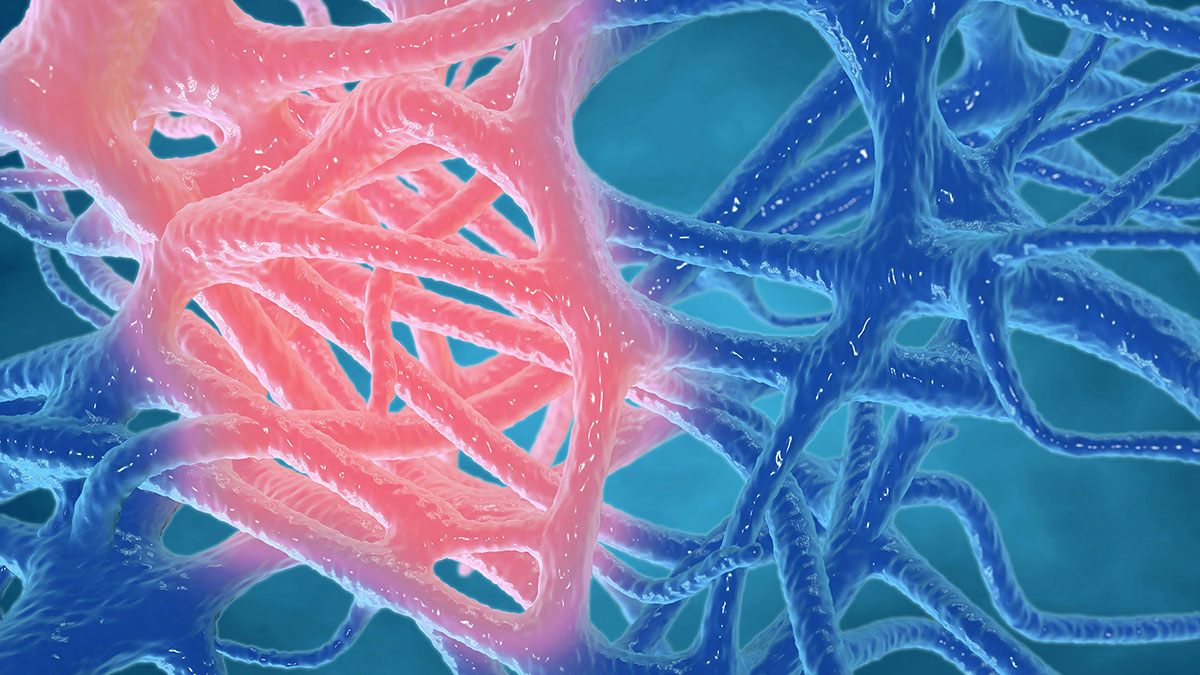PharmAust’s preliminary trial data indicate slowing or stopping the progression of motor neuron loss that causes MND

The disease is believed to develop and progress due to neuronal inflammation and cell death due to production of misfolded proteins in brain tissue. Pic via Getty Images.
Preliminary data from the Phase 1/2 trial of PharmAust’s lead drug candidate monepantel (MPL) in Motor Neurone Disease/Amyotrophic Lateral Sclerosis (MND/ALS) has indicated that the suppression of inflammation that may be responsible for disease progression.
MND/ALS is believed to develop and progress due to neuronal inflammation and cell death due to production of misfolded proteins in brain tissue.
The latest data shows there’s a clear correlation between reduced Peripheral Blood Mononuclear Cell (PBMC) p-RPS6KB1 (B1) and p-EIF4EBP1 (P1) protein levels with the company’s monepantel (MPL) treatment.
Five of seven participants enrolled in Cohort 1 have decreased B1 protein levels in PBMCs and six of seven participants have decreased P1 protein levels in PBMCs.
This indicates MPL correctly targets the mTOR pathway in the blood of people with MND/ALS, the company says.
Significant leap forward in understanding
With the correct dose, misfolded/mutant/aggregated proteins in the motor neurons may be processed with minimal localised inflammation, thereby slowing or stopping the progression of motor neuron loss that causes the disease.
“Molecular and cellular pathways of neurodegeneration in MND are complex,” PharmAust (ASX:PAA) executive chairman Dr Roger Aston said.
“However, it appears that oxidative stress, protein misfolding and aggregation may be underlying causes for the inflammation associated in neurones during MND progression.”
“Here we show that in Cohort 1 of oral monepantel in treating MND there is significant suppression of inflammatory markers.
“In preclinical studies we have shown that monepantel crosses the blood-brain barrier.
“These results bode well as we analyse markers that predict MND disease progression.”
Analysis of Cohort 2 data ongoing
In addition to assisting the elimination of mutant cancer cells, and in accordance with published literature, PharmAust proposes that inhibition of mTOR signalling and the activation of autophagy assists in eliminating mutant, misfolded and or excessive proteins associated with the damage of motor neurons causal to MND/ALS.
It is not yet known why one subject in Cohort 1 did not have decreased blood p-RPS6KB1 and p-EIF4EBP1 protein levels, however initial analysis indicates it may be associated with an individual’s metabolic activity and/or tablet administration compliance issues.
“These possibilities will be explored with the ongoing analysis of the Cohort 2 data so that we can better interpret these results,” the company said.
This article was developed in collaboration with PharmAust Limited, a Stockhead advertiser at the time of publishing.
This article does not constitute financial product advice. You should consider obtaining independent advice before making any financial decisions.
Related Topics

SUBSCRIBE
Get the latest breaking news and stocks straight to your inbox.
It's free. Unsubscribe whenever you want.
By proceeding, you confirm you understand that we handle personal information in accordance with our Privacy Policy.








